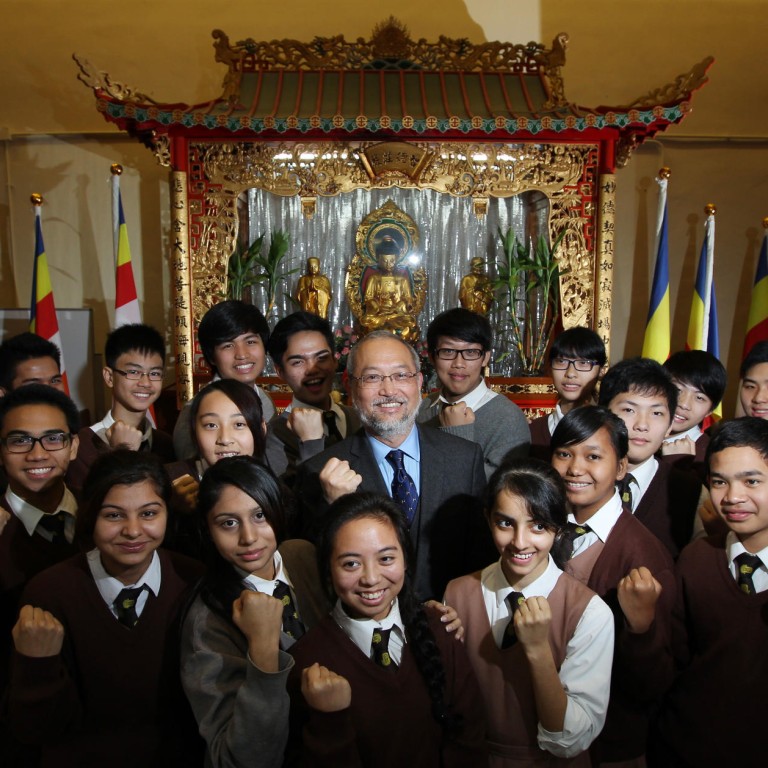
School passes the popularity test
Buddhist Fat Ho Memorial College has seen off the threat of closure and is looking at expansion
Once threatened with closure, a Buddhist secondary school in a remote corner of Lantau Island is now looking at taking over an abandoned campus to cope with its overflowing classrooms.
In 2009, Buddhist Fat Ho Memorial College in Tai O had fewer than 300 pupils and was almost shut down by the government because it could not meet admission targets. Instead, that year it switched to the direct subsidy system, which allows it to charge fees and create its own curriculum, and it has not looked back.
It is one of four direct subsidy schools supporting ethnic minority children and now has over 400 pupils, despite its location on the westernmost tip of Lantau. Non-Chinese pupils make up about a third of its numbers.
It is considering applying for the old Heung Yee Kuk secondary school in Mui Wo which has lain empty since 2007. The building would become its English-language school, while Chinese-language teaching would be concentrated at Tai O.
An application would pit the school against the Christian Zheng Sheng College - the school dedicated to helping reform young drug offenders which has been trying to relocate to the Mui Wo building since 2009 in the face of strong local opposition.
Fat Ho principal Eric Yuon Fuk-lung says his school has to house 18 classes in 14 classrooms and is planning to buy six shipping containers to convert into activity rooms.
He said: "The overall population on the outlying islands has been dropping, but the population in our school has been increasing. When we reach our maximum capacity, we might have to stop admitting more pupils. But I believe we'll do better and better."
Although Yuon said he had no immediate plan to apply for the Mui Wo site - a move urged by the local rural committee and district councillors - he sees it as a potential English-language campus for families in Discovery Bay, Mui Wo and Pui O.
Yuon said his pupils came from across the world, including the Philippines, Pakistan, India, South Africa, South Korea, Nepal, New Zealand and Britain, and he is now eyeing children born in Hong Kong to mainland parents.
"As the academic performance of our pupils gets better, I'm now starting to think of the 'double nots' [neither of the parents is a Hong Kong resident]," said Yuon.
"Many mainland pupils, even those in second-tier schools, can better Hong Kong pupils because they are hard working. I'm worried that Hongkongers may not be able to compete with mainland and overseas talent."
He added that mainland parents prefer boarding schools for their children, a resource Fat Ho can provide. Po Lin Monastery, Fat Ho's main sponsor, provides about 40 rooms for pupils in one of its temples near Tai O.
The children get vegetarian meals and have no television or internet - and Yuon says many parents believe the lifestyle helps pupils to focus on their study.
Thanks to the monastery's funding, the college charges a tuition fee of just HK$450 a month and its teachers are well paid, according to Yuon. He said his school also takes on "problem children" and his job is to assure them that they are not forgotten.
Boarder Chan Wai-kwok, 15, received an 18-month probation order last year for triad membership. He said: "In my previous school, every class was separated from one another. But here, we're like a family. We stick together."

